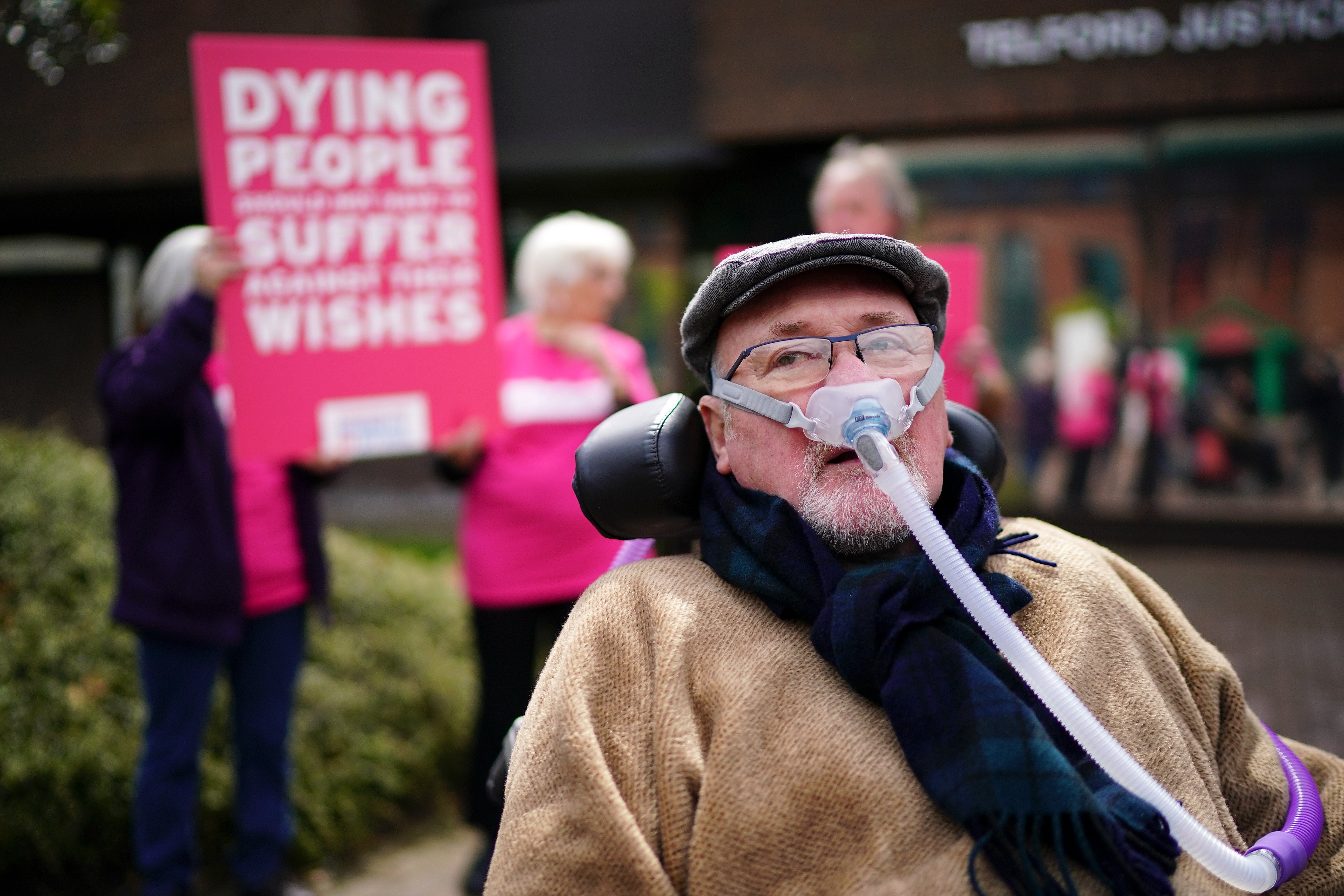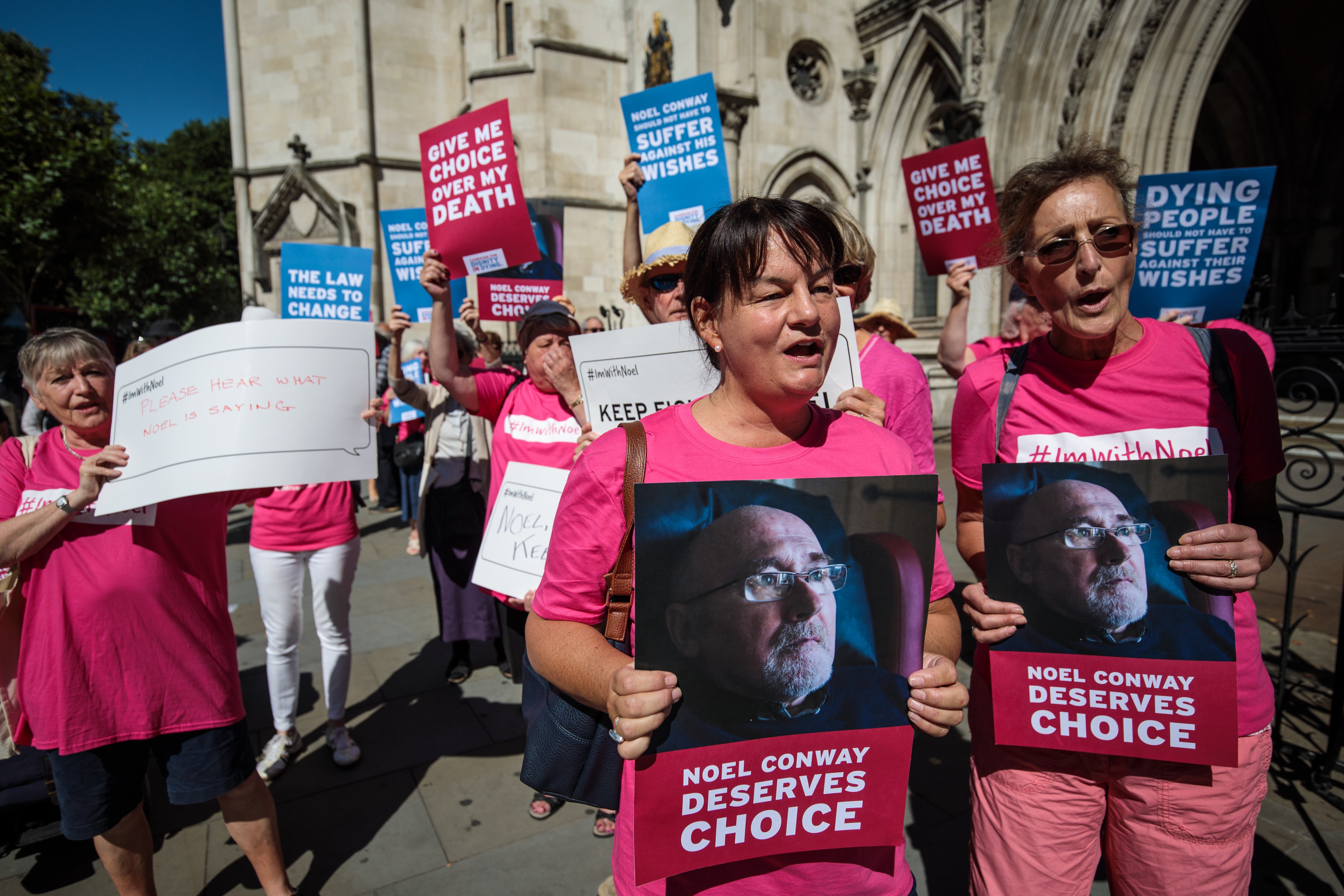Noel Conway: Campaigner who fought to overturn assisted dying ban
After being diagnosed with motor neurone disease, Conway pushed for the law to allow terminally ill individuals to end their own life

Noel Conway was a campaigner for the right to die who challenged the current ban in the UK on assisted dying. He and his fellow campaigners advocated a change in the law to allow terminally ill individuals to opt to end their own life at a time of their choosing.
Conway, who has died aged 71, supported the charity Dignity in Dying, which campaigns for a change in the law on assisted dying. The charity, in turn, supported him in bringing a judicial review of the ban. Although unsuccessful, the review has opened up discussion of the current situation for terminally ill people, and brought hope of a future change.
Noel Conway was born in Lancashire in 1949. In 1976 he moved to Shropshire, working in further education as a teacher of general studies and sociology for school leavers and adults. He later became involved in programmes supporting access to higher education, teaching English and sociology. He said about this time: “I must say that this work has been hugely satisfying and is probably, without over-exaggerating, the high point of my life. Access to higher education is about providing second chances to adults to progress educationally in life and to obtain professional careers following a university course.”
In November 2014 Conway was diagnosed with motor neurone disease (MND), a progressive, debilitating and currently incurable condition. “Before that fateful day, when I heard from the neurologist on my mobile as I walked out of Morrison’s that I could have motor neurone disease, life was good,” he recalled. Knowing the prognosis for MND, he began his campaign for a change in the law.
During 2017 and 2018 he was party to a judicial review and subsequent appeal, challenging the current UK blanket ban on assisted dying. He argued that under current law – the Suicide Act of 1961 – he was prevented from exercising his right of choice and control over his own death. The result, he said, was that he suffered against his wishes, contrary to Article 8 of the European Convention on Human Rights (which provides a right to respect for private and family life) and article 14, which provides protection from discrimination.

Conway said that he wanted to say goodbye to loved ones “at the right time, not to be in a zombie-like condition suffering both physically and psychologically”. Through his campaigning and that of others, including Tony Nicklinson and Debbie Purdy, and in spite of opposition from some sections of society, progress is being made on changing the law.
Despite the law which prevented him – and others – from choosing when and how to die, he acknowledged that in his case he could exercise a degree of control, by asking for removal of the ventilator which helped him to breathe.
Already a keen linguist and writer, when Conway found that he could no longer enjoy his previously active life, which had involved cycling, climbing and skiing, he published a book of his poetry and short stories, titled A Life in Words (2017). He died at home in Garmston, Shropshire, after choosing to remove his ventilator, supported by his family and a local hospice. A statement Conway wrote for release after his death begins:
“When you read this I will be dead. Not because I have suffered a tragic accident or died suffering from a longstanding or painful disease. No, it will be because I have made a conscious and deliberate effort to end my own life. I suffer from motor neurone disease and was diagnosed over six years ago, knowing that at some stage I would reach a point when my muscles would have deteriorated to such an extent that I could not function effectively.”
Sarah Wootton, chief executive of Dignity in Dying, said in a tribute: “We are indebted to Noel, an inimitable and award-winning campaigner who helped put assisted dying firmly on the political agenda in this country. Noel fought in the courts, lobbied parliamentarians, and spoke powerfully to the media about his suffering under the UK’s blanket ban on assisted dying, all the while knowing any change would most likely come too late for him.”
He is survived by his wife Carol and their children.
Noel Conway, teacher and campaigner, born 14 December 1949, died 9 June 2021

